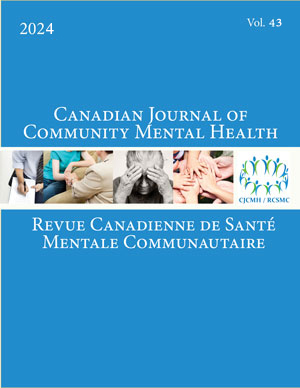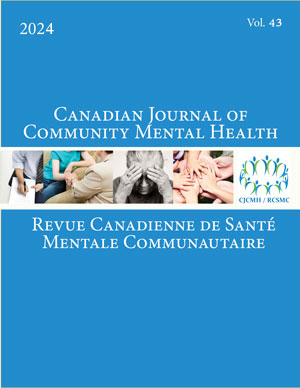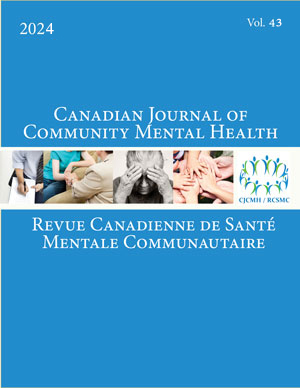Volume 16 • Number 1 • September 1997
OPEN ACCESS
OPEN ACCESS
OPEN ACCESS
The delivery of health and social services in Canada's northern First Nations is undermined by the fact that professionals from outside and para-professionals from the communities often fail to respect one another's capabilities or to undertand one another's roles and, consequently, do not work well together. This paper explores the personal, professional, and situational causes, using examples of mental health care in the Sioux Lookout Zone of northwestern Ontario. Arguing that an interdisciplinary team approach is the ideal and, perhaps, the only real way in which essential services can be delivered, the authors suggest ways to achieve more effective collaboration.
OPEN ACCESS
This paper discusses issues related to the development of plans to improve the effectiveness of mental health services for urban First Nations people. The discussion focuses on emerging issues related to health care reform and re-gionalization. While it is impossible to make specific recommendations without reference to local conditions, developing an awareness of the general issues involved will help in the process of identifying the principles and approaches needed to frame local solutions.
OPEN ACCESS
The limitations of a needs orientation for aboriginal mental health planning are evaluated in terms of the discrepancy between First Nations and western medical paradigms of health. We propose an alternative approach that focuses on how aboriginal people conceptualize wellness and describe their strengths. This provides a focus for initiatives that promote well-being by enhancing strengths rather than concentrating solely on deficits. We illustrate this approach by highlighting the indigenous knowledge of urban First Nations people in Vancouver's Downtown Eastside neighbourhood. We conclude that supporting existing strengths promotes wellness in holistic, culturally appropriate, and empowering ways.
OPEN ACCESS
The purpose of this study was to create a discourse about recovery that embodied and reflected the life experience of six First Nations women who had experienced childhood sexual abuse and addictions. An exploratory, emancipatory, feminist qualitative research design elicited data through interactive audio-taped interview processes. The six stories were translated into four emergent themes with 10 subtexts. Gender and culture were central considerations in the women's stories of recovery.
OPEN ACCESS
This study explores how five British Columbia First Nations women moved through suicidal ideation and intention in their youth. Much of their healing process was facilitated by a reconnection to their cultural identity and traditional native spirituality. Phenomenological research methods were used to guide the interview process, analysis, and the interpretation of unstructured interviews. Each transcribed interview was analyzed for themes and developed into a narrative. Several procedures were used to examine the validity of the analysis and interpretation, including participant review of the findings. Three of the 12 themes that emerged suggest common experiences surrounding suicide attempts or ideation. These experiences suggest that the impact of separation from family, community, and culture was significant for each of these women. Nine of the 12 major themes describe a variety of healing experiences for these five women, involving elders or other role models, professional counsellors, family, and community. As a consequence of their healing experiences, all participants reported an increased sense of personal empowerment, a positive view of themselves, and a commitment to a positive future for themselves and other First Nations people. The significance of cultural connections and native spirituality may have important implications for the intervention and prevention of suicide in First Nations youth.
OPEN ACCESS
First Nations people in British Columbia are struggling to overcome the effects of assimilationist practices and cultural loss. Many of the mental health problems facing First Nations people today can be traced to this loss. Their communities believe the best way to address this problem is by training their own people as mental health professionals who could then provide informed and culturally relevant counselling services. In the spring of 1996 a provincewide survey was conducted to determine the nature of counsellor training needed by First Nations people in the province of British Columbia. This article describes the rationale for this survey and the results.










